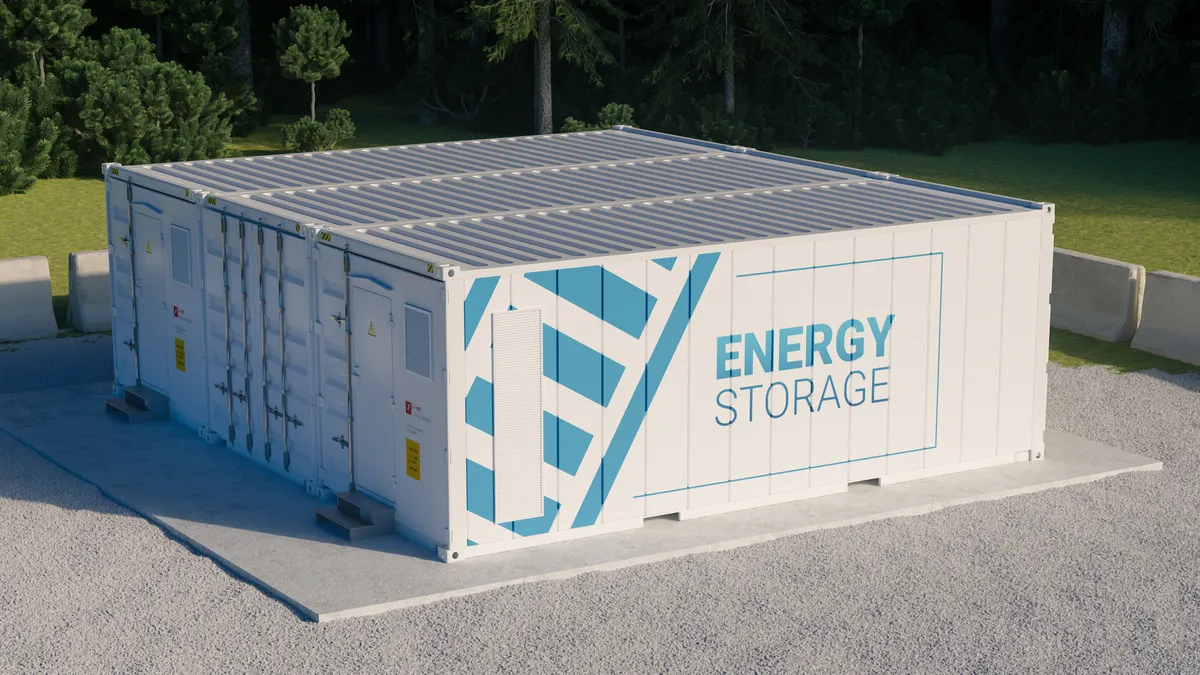UPDATE: May 18, 2021: FERC denied MISO's extension request May 17. The commission found "that MISO has not shown good cause for granting its request."
Dive Brief:
- Midcontinent Independent System Operator (MISO) CEO John Bear has asked FERC to pay "considerable attention" to the operator's request for an extension in complying with an order to integrate storage on the marketplace.
- MISO is committed to greater participation of electric storage resources (ESRs), but federal requirements to bring them into the marketplace could compromise with members' carbon reduction goals, Bear wrote in comments filed May 10. That "has placed MISO in an unenviable position of choosing a path between conflicting goals that could jeopardize our capability to operate our 15-state wholesale grid reliably, efficiently and securely."
- MISO requested an extension in March to implement tariff provisions to comply with FERC's Order 841 from June 6, 2022 until March 1, 2025, saying that would allow MISO to integrate a new market software platform that would better handle ESRs.
Dive Insight:
FERC's Order 841 was issued in 2018 to boost the storage sector and ensure that it would be fairly compensated for its unique role in the electricity market. Citing the complexity in upgrading policy and market system software, MISO requested and was granted an extension for compliance through 2022. However, in March, MISO submitted a second extension request, noting that its Market System Enhancement (MSE) software platform was not scheduled to be completed until 2025 (MISO said the software could be finished a year earlier if the extension were granted).
In the latest comment, Bear states that MISO projects adding as much as 50 GW of solar and 31 GW of wind by 2040, but only 600 MW of battery storage, with a small amount in the short term. That, he said, could leave the grid at risk of reliability issues and cost increases because of the intermittency of renewable sources.
However, energy storage advocates said MISO's delays could discourage potential storage developers by failing to maximize the resource's potential on the market. Natalie McIntire, a technical/policy consultant for the Minnesota-based Clean Grid Alliance, said while the group supports MISO's market enhancement efforts, the operator should also find short-term policies that could expedite the deployment of hybrid solar and storage projects.
"Our ask is that MISO not put off this Order 841 compliance completely until the 2025 date they had requested, but that they continue to work in the interim to see how they can come up with improvements that would allow more hybrid systems," McIntire said. "It's a bit of a Catch-22, where we need a nearer-term solution while we are working on the longer term effort."
Clean Grid Alliance was one of several groups that filed a joint comment in March saying the requested extension to 2025 would have a "detrimental impact" on the storage market. In a separate comment, NextEra Energy Resources said the delay was "unacceptable" and would cause uncertainty among its subsidiaries trying to develop storage resources.
Additionally, MISO's interconnection queue shows more potential hybrid and battery storage projects than Bear cited in his letter, which advocates say is evidence the market should be ready.
"In that letter, John [Bear] seems to say we can either integrate renewables or we can comply with 841," said Daniel Hall, central region senior director for electricity and transmission policy at the American Clean Power Association. "That's a false dichotomy, since work on storage can facilitate that work on expanding renewables."













